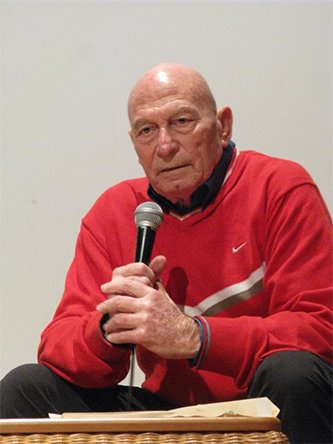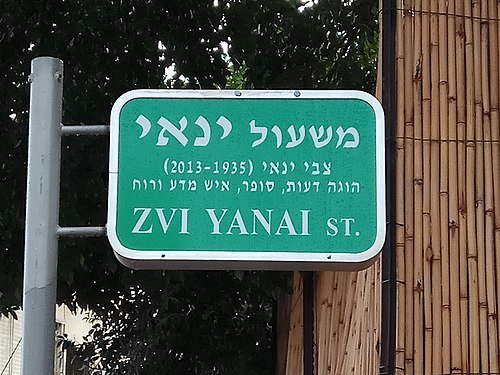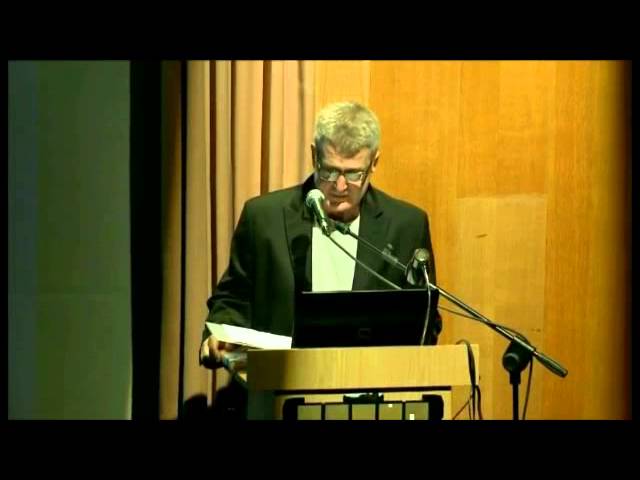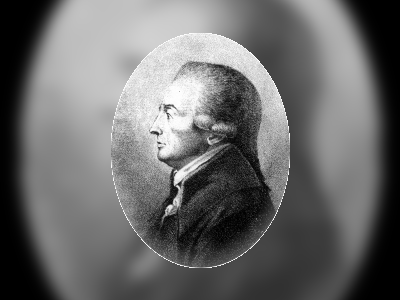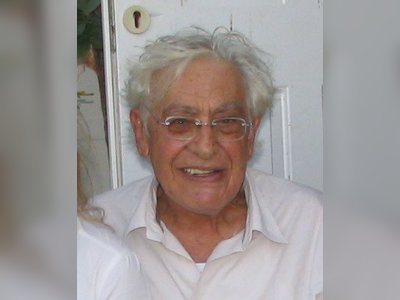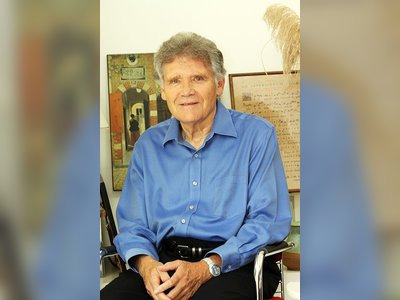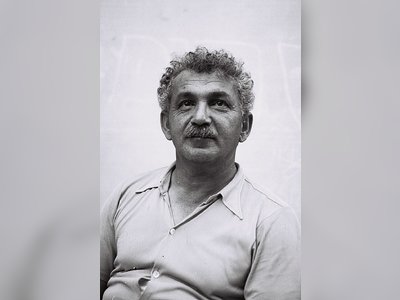Zvi Yanai: The Israeli Intellectual and Autodidact
Zvi Yanai (June 9, 1935 - December 16, 2013) was an Israeli thinker, autodidact, Hebrew poet, and recipient of the Sapir Prize. He held various roles, including being a spokesperson for the State of Israel and serving as the Director-General of the Ministry of Science.
Biography
Zvi Yanai was born in Pescara, Italy, with the birth name Sandro Tot. His father, Kálmán Tot, was a Hungarian-Romanian Protestant opera singer, while his mother, Yutzi Galambos, was a Jewish dancer of Hungarian descent. Zvi Yanai was the youngest of their children, born after his two sisters and brother. Strangely, his brother, Romolo, was left with a peasant family in Catenzaro, in the Calabria region of Southern Italy, and his traces were lost.
Zvi Yanai's parents did not receive Italian citizenship, and at the beginning of World War II, his father, Kálmán Tot, was deported to Hungary, eventually returning to his family in Oradea, Transylvania, and likely passed away in 1942 or 1943. His mother, on the other hand, remained with her three children in Castiglion Fiorentino, near Florence in Tuscany.
In 1942, Yanai and his sisters converted to Catholicism. His mother made a living by teaching German and, with the German army's occupation of the area, worked as an interpreter for the German army. In early 1944, his mother passed away due to heart problems, and Ida Brunelli-Lenti, an artist, volunteered to care for the three orphans.
The German soldiers, unaware of the family's Jewish background, provided them with food and transported them to their mother's family in Montelciche, which was located south of Padua and closer to Castiglion Fiorentino.
After the British occupied Montelciche, the city's mayor, who knew that the children were Jewish, contacted the Jewish Brigade soldiers stationed in Italy. Yanai's uncle on his mother's side, Paoli Galambos, who was then living in Israel and changed his name to Shaul Yanai, asked the Brigade soldiers to find out what had happened to his sister and her children.
The connection established with Zvi Yanai allowed him and his sisters to be brought to Israel, and in July 1945, they sailed from Naples to Haifa on the "Metrua" ship when Zvi Yanai was ten years old. After a short stay in the Atlit detention camp, the three children were taken in by the Tote family in Kibbutz Ramat David.
At the age of 17, in 1952, Zvi Yanai joined the Israel Defense Forces (IDF) and volunteered for the Paratroopers Brigade. He underwent training as a paratrooper and served as a jump instructor. Following the merger of Unit 101 with the Commando Brigade under the command of Ariel Sharon, Yanai participated in punitive operations and the Sinai Campaign.
In July 1956, he participated in the World Parachuting Championship held in the Soviet Union, and during this trip, he changed his last name from Tot to Yanai, adopting his uncle's family name. In 1956, he was discharged from the IDF after a year of mandatory service. In the Six-Day War, Yanai served as a reservist in the 317th Paratroopers Brigade during the Golan Heights operation, and in the Yom Kippur War, he fought in the Commando Brigade 317 during Operation Kinnon.
In 1970, Zvi Yanai joined the Israeli Broadcasting Authority (IBA) and established and managed the Information and External Relations Department, serving as the spokesperson for the IBA. Within this role, he also edited the organization's magazine, "Machshavot" (Thoughts), starting from its 16th issue.
Under Yanai's guidance, the magazine's focus shifted from marketing and commerce to intellectual and scientific subjects. Yanai edited the magazine until its closure in 1996. In the magazine's later years, under Yanai's direction, "Machshavot" organized annual conferences titled "Machshavot Ba'al Peh" (Oral Thoughts).
In 1990, Zvi Yanai hosted a television program about cinema called "Sipurim Bedim" (Threads of Cinema), along with Rachel Gordin. He also hosted a television program featuring interviews with scientists called "Dvarim Ba'Go" (Things in the Body), and he presented radio programs on science.
In 1991, he advised the Public Council of the Jerusalem High School for Science and Arts. In 1993, he was an advisor to the then-Minister of Health, Ehud Olmert, on healthcare reform. In 1993, he was appointed by Shulamit Aloni to serve as the Director-General of the Ministry of Science, a position he held until 1997.
Zvi Yanai lectured on philosophy, culture, and science in various forums and advised hi-tech companies on organizational philosophy.
In 2006, his book "Shlach, Sandro" was published, and in 2008, he was awarded the Sapir Prize for this work.
Zvi Yanai had four children: two from his first marriage to Naomi Yanai in 1960 and twins from his partner, Delia Hochberg.
Zvi Yanai passed away on December 16, 2013, at the age of 78, and was buried in the Menucha Nechona Cemetery in Kfar Saba. His partner donated his collection of approximately 1,500 books to the library established in Daliyat al-Karmel.
On the fifth anniversary of his death, a street near his residence in Ramat Gan was named "Mas'olei Yanai" (Yanai Path).
Literary Work
Zvi Yanai authored "Shlach, Sandro" in 2006, a work for which he received the Sapir Prize in 2008.
- צבי ינאיhe.wikipedia.org
